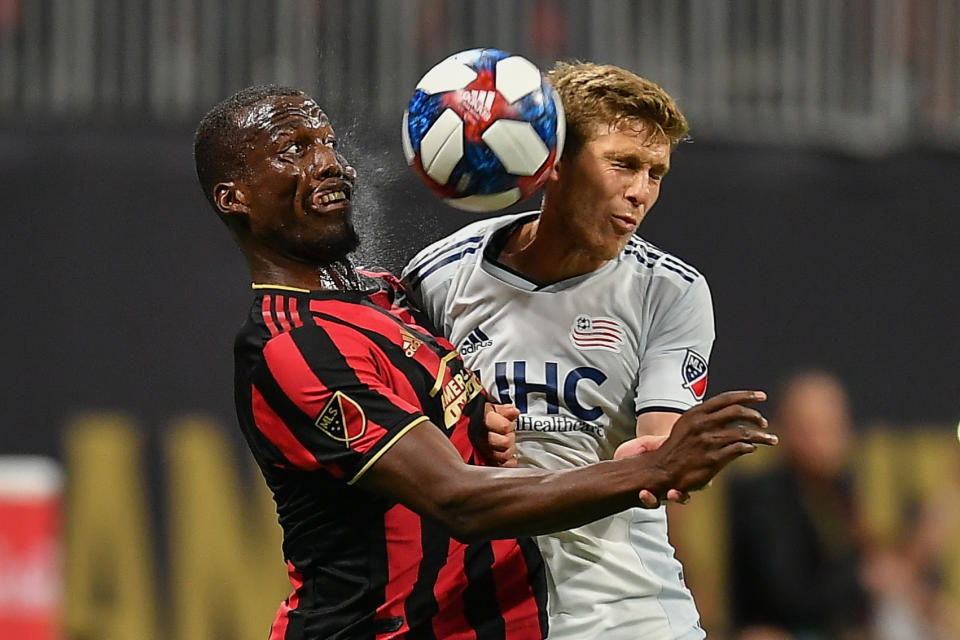Study finds soccer players at higher risk for dementia, but leaves larger question of why

A landmark study by the University of Glasgow’s Brain Injury Group in Scotland shows professional soccer players are more likely to suffer from neurological diseases, The Guardian reported Monday.
The report found players were less likely to die of heart disease and certain cancers, but the findings of dementia have raised more concerns about heading in the sport.
Study shows soccer players are higher risk
The 22-month study compared the cause of death of 7,676 former male professional players born between 1900 and 1976 to more than 23,000 people form the general population. It found, per the Guardian, that players were 3.5 times more likely to suffer from neurological diseases, though the risk is still low. The Associated Press reports that 1.7 percent of former players and .5 percent of the control group died of those diseases.
The study found soccer players were five times more likely to have Alzheimer’s, four times more likely to have a motor neurone disease and two times more likely to suffer from Parkinson’s disease. It also found they lived 3.25 years longer.
It was sponsored by the English Football Association and players’ union. The family of former England striker Jeff Astle has been at the forefront of the push for research after a coroner determined in 2002 he died of an “industrial disease” partly caused by heading heavy soccer balls, per the Guardian.
Questions remain about link with dementia
The study only compared the two groups to find a link. It did not come to a conclusion about how that link came about, which leaves more research to be done. Per the Guardian, it could not establish if the link was due to repeated concussions, heading leather balls, the weight of older balls during that age or another factor. The Football Association will examine those potential causes.
It also studied only men, a common factor in medicine. There is therefore nothing to say that the same impact occurs for female soccer players. In June, former USWNT players became the first to take part in a study researching Chronic Traumatic Encephalopathy (CTE) in female soccer players. It comes years after studies about men and CTE were first released.
The Glasgow study also doesn’t look at youth, high school or college players, who could be affected differently.
Boston University scientist Dr. Robert Stern cautioned against “undue fear and panic” in a commentary on the study. Via the Associated Press:
"Parents of children who headed the ball in youth or high-school soccer should not fear that their children are destined to have cognitive decline and dementia later in life. Rather, they should focus on the substantial health benefits from exercise and participation in a sport that their children enjoy," while also being aware of the risks of head-balling, Stern wrote.
The Football Association said there was not enough evidence to change the game. A difference in style, substitutions and how much youth players head the ball has helped.
American soccer fighting concussion problem
The NFL and football gets most of the attention when it comes to head injuries, concussions and CTE, but it is a well-known problem in soccer, too. The U. S Soccer Federation and the American soccer leagues co-signed a letter earlier this year urging FIFA and its rule-making group, IFAB, to update its current concussion protocol.
It is unclear what those new rules and regulations would look like, Caitlin Murray wrote for Yahoo Sports, but advocates are optimistic and NWSL leaders are willing to have it tested in their league. The changes will likely be up for discussion at the December meeting.
More from Yahoo Sports:


